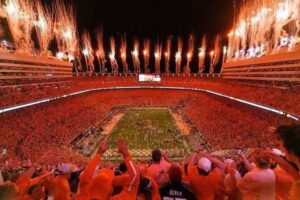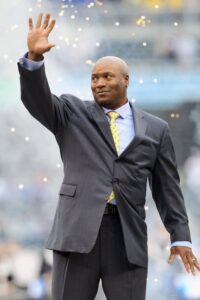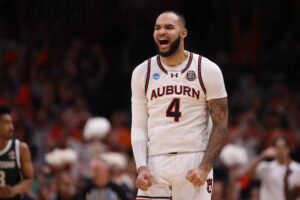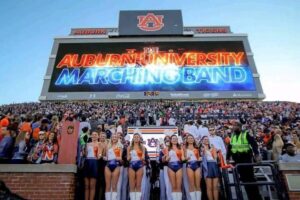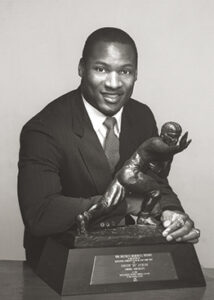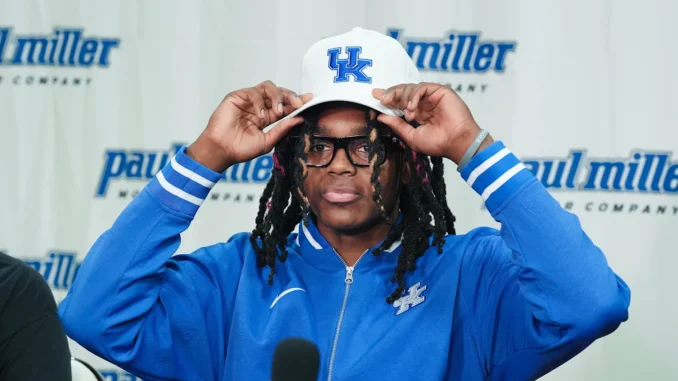
The ever-evolving landscape of college athletics took another monumental turn this week, as one of the most promising high school basketball players in the country—and a top Kentucky Wildcats commit—officially signed with one of the most powerful sports agencies in America for name, image, and likeness (NIL) representation.
In a move that underscores how much college recruiting has shifted in the NIL era, five-star combo guard Jayden Quinn, the No. 6 overall prospect in the 2025 recruiting class according to 247Sports, announced that he has inked a deal with Klutch Sports Group, an agency known for representing NBA superstars like LeBron James, Anthony Davis, and Draymond Green. The announcement sent shockwaves through the college basketball community, not only because of Quinn’s immense talent and potential, but because of what this means for Kentucky basketball and the broader implications for the NIL market.
Quinn, a 6-foot-5 scoring guard out of California powerhouse Sierra Canyon, committed to Kentucky in February over offers from Kansas, Duke, Michigan, and Arkansas. Though his decision to play for the Wildcats was seen as a recruiting win for head coach Mark Pope in his first year at the helm, the move to join a top-tier agency further elevates the narrative that Kentucky is becoming a dominant force again—not just in recruiting rankings, but in the new NIL battleground that defines the college sports economy.
Sources close to Quinn’s camp say the Klutch Sports partnership is multi-faceted, with the agency already in talks to secure national sponsorships, apparel partnerships, and digital content opportunities that will take effect the moment he enrolls in Lexington. The NIL deal is reportedly structured to provide Quinn with both short-term financial support and long-term branding strategies, signaling a new tier of preparation for high-level high school athletes entering the college ranks.
Although the NCAA does not allow agents to negotiate professional contracts for student-athletes while they are still amateur players, NIL representation is permitted under current guidelines. Agencies like Klutch Sports, CAA, and Wasserman have been among the most active in creating marketing arms specifically designed to cater to the NIL generation. And Quinn, considered one of the most media-savvy and marketable players in the 2025 class, is expected to be one of the top earners among incoming freshmen next season.
For Kentucky fans, the news represents a double victory. Not only is one of the most electrifying high school players officially aligned with Big Blue Nation, but he’s also taking steps to become a household name under the university’s banner. That kind of exposure and influence only furthers the narrative that Kentucky is primed to return to college basketball royalty after several seasons of inconsistent results.
Mark Pope, who took over the storied program after John Calipari departed for Arkansas, has emphasized a modernized, NIL-forward approach since his hiring. While some traditionalists in college basketball continue to express concern about how the NIL world is impacting the purity of the sport, Pope has leaned all the way in, openly talking about how Kentucky is positioned to be a leader in the NIL space.
“This is the new game,” Pope said recently during a media availability. “If we want to attract the best players and compete for national championships, we need to make sure our guys are set up to succeed on and off the court. That means being proactive with NIL. That means working with families and players on brand-building. We want Kentucky to be the place where players thrive—not just as athletes, but as entrepreneurs, influencers, and future professionals.”
Quinn appears to embody that vision. With over 500,000 combined followers across Instagram, TikTok, and X (formerly Twitter), the soon-to-be Wildcat is already building a strong digital presence. He’s known for his deep shooting range, shifty handle, and elite court vision, but it’s his charisma and confidence that truly set him apart in today’s NIL-driven world.
According to Klutch Sports, part of their strategy with Quinn includes long-form documentary content chronicling his senior year, personalized merchandise drops, and branded social media campaigns. While specifics on dollar amounts remain confidential, industry insiders estimate that Quinn could command mid-six to low-seven figure earnings before he even plays his first game in Rupp Arena.
The move also reignites the ongoing discussion around how college basketball bluebloods are leveraging NIL to regain—or maintain—their competitive edge. For years, Kentucky stood as the undisputed king of the one-and-done era, sending freshmen to the NBA Draft in droves under Calipari’s guidance. But in recent years, the Wildcats struggled to turn talent into titles, and the program’s prestige began to take hits from fan frustration and early tournament exits.
Pope, a former Wildcat himself and an increasingly popular figure among alumni, has quickly taken steps to flip the narrative. He’s landed multiple top-10 recruits for the 2025 cycle, retained key players from the current roster, and now boasts one of the most forward-thinking NIL operations in the SEC. Quinn’s partnership with Klutch only adds fuel to the momentum.
It’s also worth noting that Quinn isn’t the first Kentucky commit to explore NIL representation, but his decision to align with such a major agency makes a powerful statement. It signals that Kentucky is not only attracting top-tier talent, but talent with the confidence and professionalism to handle the pressures of being a brand as much as a player.
Recruiting insiders say that Quinn’s NIL deal may open the floodgates for other elite recruits to consider Kentucky not just as a basketball powerhouse, but as a launchpad for their business ambitions. The Wildcats are already reportedly in the mix for several other five-star prospects in the 2025 and 2026 classes, and the success of Quinn’s marketing ventures will likely be used as a case study during future recruiting pitches.
College basketball has always been about more than just the games. It’s about pageantry, prestige, and the pathway to the NBA. But in 2025, the game within the game is NIL, and whoever plays it best stands to dominate both on the court and in the market. With this latest development, Kentucky is making it clear that it plans to do both.
Still, questions remain about how programs will continue to balance recruiting, roster management, and financial dynamics in the NIL era. What happens when one freshman is making significantly more than a senior leader? How do you preserve locker room chemistry when the business side of the sport looms so large? These are challenges that every major program will face, but especially ones like Kentucky, where expectations are sky-high and media scrutiny is relentless.
Pope’s approach seems to rely on transparency and education. According to sources within the Kentucky athletic department, the program has invested heavily in NIL infrastructure, including dedicated staffers, brand consultants, and legal advisors. Players are briefed on contracts, taught about taxes, and educated on the long-term consequences of branding decisions. The goal isn’t just to make money—it’s to set players up for life.
For Quinn, that life could begin even before he steps foot on campus. Sources suggest that the Sierra Canyon product will be part of a national marketing campaign with a major athletic wear brand before the end of the year. He’s also expected to attend multiple industry networking events this summer, representing both himself and Kentucky on the national stage.
All of this signals that we are rapidly approaching a point where high school and college athletes are no longer “amateurs” in the traditional sense. They’re CEOs of their own brand, expected to perform not just in gyms and arenas, but in boardrooms and brand meetings. And if that sounds like a lot for a teenager to handle, that’s because it is. But for athletes like Jayden Quinn, it’s also an opportunity too big to pass up.
Critics of the NIL system often argue that it distracts players from the sport itself, but Quinn’s inner circle rejects that notion. His high school coach described him as the “hardest worker in the gym” and someone who “would play for free if it came down to it.” The coach also noted that the added pressure of being a marketable athlete hasn’t changed Quinn’s routine or humility.
“He still shows up early. He still stays late. And he still listens,” the coach said. “What makes him special isn’t just his talent—it’s that he knows what this game can do for him, and he respects it.”
As for the Wildcats, they’re hoping this move sets the tone for a new era. Kentucky’s NIL collectives are now considered among the most organized in the country. The university has ramped up partnerships with financial institutions, marketing firms, and creative agencies. In a space where timing, planning, and execution matter just as much as talent, Kentucky is no longer playing catch-up—they’re leading.
Whether Quinn becomes a one-and-done NBA lottery pick or stays multiple years in Lexington remains to be seen. But one thing is certain: he is the face of the next chapter of Kentucky basketball, and his decision to join forces with Klutch Sports may be remembered as the moment the Wildcats fully embraced the future of college sports.
In a world where talent meets technology, where the hardwood meets the digital marketplace, and where tradition meets transformation, the Kentucky Wildcats are planting their flag. And with Jayden Quinn now part of the family—on the court and in the market—they’re daring the rest of the country to try and keep up.
